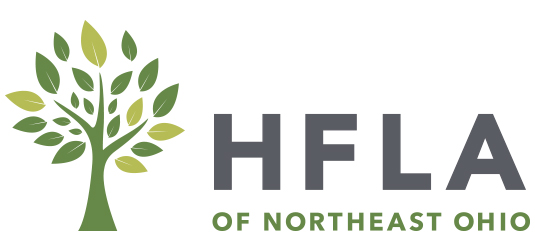Unbanked and Underserved: The Importance of a Bank Account
Nationally, more people than ever are opening bank accounts. Opening and maintaining a bank account can be one of the most effective ways to achieve your financial goals, including increasing your credit score, buying a house, or just finding financial security. In 2023, the US’s unbanked rate dropped to 4.2%-- the lowest level since 2009. Northeast Ohio, however, is seeing a different trend. The unbanked rate in NEO increased from 2.0% in 2021 to 5.4% in 2023–an increase of over 3%!
There are a variety of reasons why people avoid mainstream financial institutions:
- Lack of trust: Many groups have been victims of racist and exclusionary practices by the mainstream financial industry that have systematically left them out of the system.
- Minimum Deposit: Until recently, most banks required a minimum amount to even open an account and maintain the account, making them inaccessible for many people with inconsistent income.
- Fees: With inconsistent income, many people face high overdraft and/or administrative fees, making traditional banking too costly.
Groups that are typically left out of traditional banking tend to be “lower-income, less-educated, Black, Hispanic, disabled, and single-parent households.” Households of color are five times more likely to be un- or under-banked compared to white households.
Those unable or unwilling to participate in the mainstream financial industry have few other options. For most, the only option is to rely on predatory services that require high fees and implement exorbitant interest rates, forcing people to pay up to 5% of their income to access their own money. This could add up to over $40,000 over one’s lifetime. These predatory lenders send people into a cycle of debt that becomes untenable and leads people further into financial instability. Even those who may have a bank account can be considered “underbanked” when they still rely on nonbank financial services, such as check cashing services or pawn shops, and therefore are still vulnerable to exploitative practices.
This is not inevitable. Bank accounts provide many opportunities in the modern economy, like establishing and building credit, avoiding fees to access their money, and growing wealth.
The Consumer Financial Protection Bureau under the Biden Administration has recently ruled to crack down on bank overdraft fees, offering banks the option to either have a flat $5 fee, cap the fee to cover costs and losses, or “charge any fee but disclose the terms of the overdraft loan they extend to customers the same way they would for those of any other loan.” This new rule can save consumers $5 billion, or roughly $225 per household. Many banks have stepped up to the challenge of making mainstream banking more accessible. Working with the Bank On National Advisory Board and Coalitions across the country, like the ones in Cleveland and Summit County, banks have lowered the barriers to banking. This includes limiting fees, removing minimum balance requirements, and working with community partners to connect people to accounts.
HFLA of Northeast Ohio can provide a third option.
HFLA has offered 0% interest loans for 120 years. Rather than continuing to spiral into a perpetual cycle of uncertainty, our loans give people the chance to stabilize their financial situation and start on the path of rebuilding. Our applicants are individuals who often get turned away from traditional banks. They are seeking help to address a need like a required home repair, medical bills, or to get out from predatory loans. We ensure that our loans are accessible, affordable, fast, and fair. Our loans are not “easier” to qualify for, but we work to remove barriers to help people get much needed capital. People are so much more than a 3-digit credit score. We try to understand the whole picture and prioritize repayment history and budgeting plans when considering their application.
There are still some barriers. All of our loans require a cosigner or guarantor. As a nonprofit, we rely on our loans being paid back to continue our work. Co-signers and guarantors provide a level of security to ensure that the loan is paid back in full.
Our staff will work with an individual through the complete repayment of the loan. Successful repayment is just as important to us as their loan payments go back into our revolving loan fund to help fund someone else’s loan, continuing the cycle. Our hope is that you come to HFLA for your first loan and through our support (and credit reporting) you will be able to access the mainstream financial system for your second loan.
With unbanked rates increasing in the Northeast Ohio area, support is needed now more than ever. Since 1904 HFLA has created financial opportunities for its community. If you want to support HFLA’s mission, you can donate here to assist with operational costs to keep our organization going. If you know someone who might benefit from an HFLA loan, please visit us at interestfree.org or contact us at team@interestfree.org.
To learn more about this topic, take a look at the Federal Reserve Bank of Cleveland’s FedTalk: “A Continued Discussion on Financial and Payments Inclusion”.
News 5 Cleveland: Local non-profit helps people of color overcome financial roadblocks
CLEVELAND — A local non-profit is looking to break down the barriers that keep people of color from accessing capital.
When Angela Sharpley set out to secure the funding she needed to expand her business, she initially found some resistance.
“I was told that there was no help for me out here,” said Angela Sharpley, small business owner.
It was the message she heard from a lender right out of the gate.
“They never got to my credit, so that’s the only thing they had to go off of was who I was,” said Sharpley.
When intentionally placed roadblocks prevent people of color like Sharpley from accessing the cash they need, HFLA of Northeast Ohio steps in to help bridge that divide.
“Our mission is to help people that don’t have access to fair financial tools,” said Michal Marcus with HFLA of Northeast Ohio.
For more than a century, the non-profit has been providing interest-free loans to those who might otherwise go without just because of who they are.
“How race and racism play out with regards to access to capital and investment absolutely needs to be at the forefront,” said Mark Joseph, CWRU professor of community development.
Along with intentional decisions based on appearance, Joseph said there is implicit bias at play.
“We have something in our perception or mindset that would lead us to believe that someone who is African-American, a person of color, is less creditworthy,” said Joseph.
Along with racism, not knowing where to find resources often keeps access to funding out of reach. Joseph said that includes “understanding where you can go for loans, for investment, or capital.”
It’s a similar issue Sharpley said she faced when starting out.
“You don’t have a road map to know where to go,” said Sharpley.
When people do finally find that direction, Sharpley hopes they have an equal chance to get the cash they need to invest in their community.
“I would like for the playing field to be made fair,” said Sharpley.
On Wednesday night, HFLA will tackle these and other topics during a virtual event called “Fostering Economic Equity: Fixing the Racial Imbalance in Consumer Finance.
“More corporations, banks, and larger financial institutions need to step up with fair financial tools,” said Marcus.
The online conversation begins at 5:30 p.m.
It is free and open to anyone in the community.
You can register at Interestfree.org.
Watch the full event and panel discussion, Fostering Economic Equity: Fixing the Racial Imbalance in Consumer Finance, on our website here: www.interestfree.org/events/fostering-economic-equity/
What can HFLA of Northeast Ohio do to foster financial equity?
Dear Supporters,
It feels like such a long time ago that the stay at home order was declared, schools were closed, businesses shuttered, and we saw our own normal operations swiftly shift to high-demand, touch-free, and remote procedures. Our state has moved forward since these mandates and Ohioans are trying to create some sense of normalcy within this chaotic period in our American history. Despite the national pandemic, protests continue to fight for change and equitable practices within our country and government systems, leaving HFLA of Northeast Ohio to confront a very important question:
What do we do to fight for change and equitable practices within the region we serve?
As staff and board members, we have an idea where to start, but we want to hear the input of our supporters, our clients, and our entire Northeastern Ohio community.
HFLA’s interest-free financing options are available to those who are unable to access conventional forms of financing. This inability to access bank or credit union loans is often due to systemic barriers that prevent those circling poverty from achieving financial security. Some of the most underserved populations in our country in terms of access to finance and capital are African Americans and Latinx communities.
Within our Northeast Ohio region, HFLA’s loan disbursement includes 52% to Black/African Americans individuals and 9% to Latinx borrowers. HFLA has smaller percentages of loans going to other demographic groups, including 3% to borrowers of Middle Eastern descent, 2% to Asian/Pacific Islander, and 2% to two or more races. Our business loan portfolio is made up of 62% business owners/entrepreneurs of color and 42% of all business loans are made to BIPOC (black, indigenous, and people of color) women (data retrieved August 2020).
HFLA has always served those who were left without equitable financial resources. Whether that means serving European immigrants in the early 1900s, or serving communities struggling to overcome economic barriers today.
This fall, on October 21st, 2020, we will take a step towards confronting the systemic inequities in the financial system with an online panel discussion with area leaders titled:
Fostering Economic Equity: Fixing the Racial Imbalance in Consumer Finance
Please stay connected with us as we provide more information and updates. This will be an honest and enlightening discussion on what the current situation is and what changes can be made to make a better future for all Northeast Ohioans.
Together we can replant Northeast Ohio.




